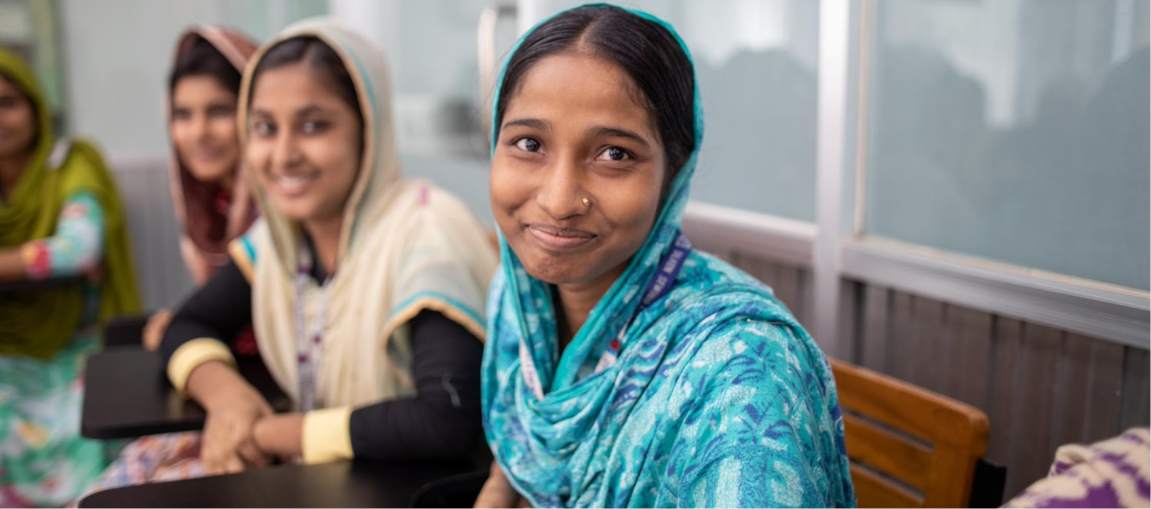Communities of Practice

Participants from The Empowering Women Workers in Bangladesh training, funded by Cotton On Group, based at the factory of Silken Sewing – a ready-made garment factory in Bangladesh. Together, CARE and Cotton On Group are providing bespoke training modules to 2,200 garment factory workers, predominantly women, across three of the Group’s supplier factories in Bangladesh. Photo: Jorja Currington/CARE.
ACFID provides member only, member-led communities of practice that foster collaboration and sharing of good practice in the sector.
Communities of Practice
A Community of Practice (CoP) is a group of people who come together to share, learn and collaborate. They are held together by a common interest in a topic, and are driven by a desire to solve problems and develop a body of knowledge together. For ACFID, CoPs play a vital role in contributing to our broader change agenda and to achieving ACFID’s aim to see our members as influential agents of change and leaders in development, humanitarian practice, NGO effectiveness, and accountability. CoPs continue to grow, bringing together more than 1000 individuals from more than 100 full and affiliate member organisations.
CoPs are member-led and run with the support of two co-convenors and the energy and commitment of interested members. They interact through MyACFID’s collaborative platform; an online space for collaboration, planning and information sharing. CoPs move fluidly between active and dormant states, depending on a variety of reasons and based on the needs of their members.
Membership of CoPs: Currently, ACFID’s CoPs are open to Full and Affiliate Members only.
ACFID’s members can join any of our CoPs through the MYACFID portal. Please read the guidance on how to do this here.
If you need assistance, please contact [email protected]
Communities of Practice
- Aboriginal and Torres Strait Islander Program
- Afghanistan
- Australian NGO Cooperation Program
- Cambodia
- Child Rights
- Climate Policy and Practice
- Education
- Finance
- Gender Equity
- Human Resources
- Localisation
- Monitoring, Evaluation and Learning (MEL)
- Myanmar
- Nepal
- Papua New Guinea
- Racial Justice
- Safeguarding
- Small Member
- Urban



